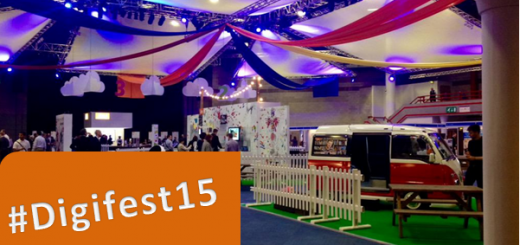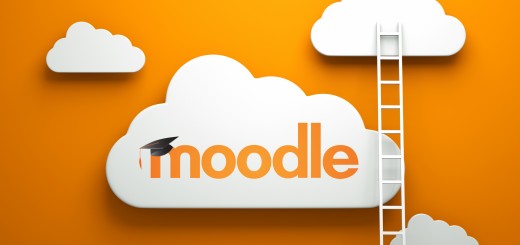Jisc Digital Student: Investigating students’ expectations of the digital environment
Following a call from the Digital Student project for examples of practice, Jisc has announced the publication of 50 short case studies in ‘enhancing the student digital experience’ in HE. These are available from the Digital Student website, organised according to the main challenges they address. A full list of exemplars can also be browsed on the site.
Challenges
- Prepare and support students to study successfully with digital technologies
- Deliver a relevant digital curriculum
- Ensure an inclusive student experience, using technology to overcome disadvantage
- Provide a robust, flexible digital environment
- Develop coherent policies for ‘Bring Your Own’
- Engage students in dialogue about their digital experience and empower them to make changes
- Take a strategic, whole-institution approach to the digital student experience
Exemplars
Prepare and support students to study successfully with digital technologies
- Guide to using social media in learning (University of Leeds, University of York, University of Manchester)
- Developing digital confidence through authentic tasks (Nottingham Trent University)
- Core skills for professional learning in medicine (Imperial College)
- Digital English for international students (University of Glasgow)
- Tweets for newcomers – a social media approach to peer induction (City University)
- Students supporting students with study strategies (Southampton Solent University)
- Digital support for essay-writing skills (The Open University)
- Online induction for distance learning (University of South Wales)
- Students get clued-up at LMU (London Metropolitan University)
- Digital literacy for employability – the Edge Award (University of Ulster)
- Skills for life online (The Open University)
Deliver a relevant digital curriculum
- Updating education studies for a digital age (Blackburn College)
- Digital storytelling for employability (University of Bolton)
- Skills for professional practice in Biosciences (Glasgow Caledonian University)
- Living and working on the web (University of Southampton)
- Embedding digital literacy in Early Childhood Studies (Bishop Grosseteste University)
- Borderless practices in journalism studies (City University)
- Integrating digital literacy with enquiry-based learning (University of Liverpool)
- Borderless journeys in photography (Phonar/Coventry University)
- Communicating through animation in social care (Manchester Metropolitan University)
- Using social media to link theory and practice (University of Oxford)
- Snapping and tweeting from the chemistry lab (University of East Anglia)
- Supporting students on field trips abroad (University of Reading)
- All About Linguistics.com (University of Sheffield)
Ensure an inclusive student experience, using technology to overcome disadvantage
- Bring your own meets get your own at USW (University of South Wales)
- Recording demonstrations for inclusive learning in design (University of Greenwich)
- An app for that – supporting assistive technology users (Dublin Institute of Technology)
- Incoming student surveys – big data, local responses (University of Glasgow)
- iPads-for-all create a level playing field (Leeds University Business School)
- Digital English for international students (University of Glasgow)
Provide a robust, flexible digital environment
- Meeting students’ changing needs for information (Manchester Metropolitan University)
- A seamless digital learning environment (Plymouth University)
- A space to play with ‘disruptive’ technologies for learning (Coventry University)
- iPads and iBooks provide a rich distance learning environment (Manchester Metropolitan University)
- A communications portal for language learners (University of Warwick)
- Students have their say on Information Systems development (Nottingham Trent University)
Develop coherent policies for ‘Bring Your Own’
- Championing the student IT experience at Bristol (University of Bristol)
- Cross-institutional open course – BYOD4L (Sheffield Hallam University and Manchester Metropolitan University)
- PGCE students ‘get their own’ iPads (University of Hull)
- Bring your own meets get your own at USW (University of South Wales)
- 1 to 1 vs BYOD at Leeds Beckett University (Leeds Beckett University)
Engage students in dialogue about their digital experience and empower them to make changes
- Staff-student partnerships in app development (University of Reading)
- iChamps at the University of Southampton (University of Southampton)
- Students as digital change agents (University of Exeter)
- Student Ambassadors for Digital Literacy (London School of Economics)
- Incoming student surveys – big data, local responses (University of Glasgow)
- Connect, create, collaborate – UCL’s digifest (University College London)
- Students supporting students with study strategies (Southampton Solent University)
Take a strategic, whole-institution approach to the digital student experience
- Developing Digital Literacies – a cross-institutional approach (University of Liverpool)
- Graduate attributes and curriculum redesign (Oxford Brookes University)
- Expert professional staff support the student experience (Manchester Metropolitan University)
- Developing staff, developing courses, developing students (Sheffield Hallam University)
- Crowd-sourcing a university strategy (Liverpool Hope University)
- Incoming student surveys – big data, local responses (University of Glasgow)
If you are interested in exploring some of the approaches outlined in these examples of work to support students’ digital experiences of university, then please contact TEL@yorksj.ac.uk.
Phil


